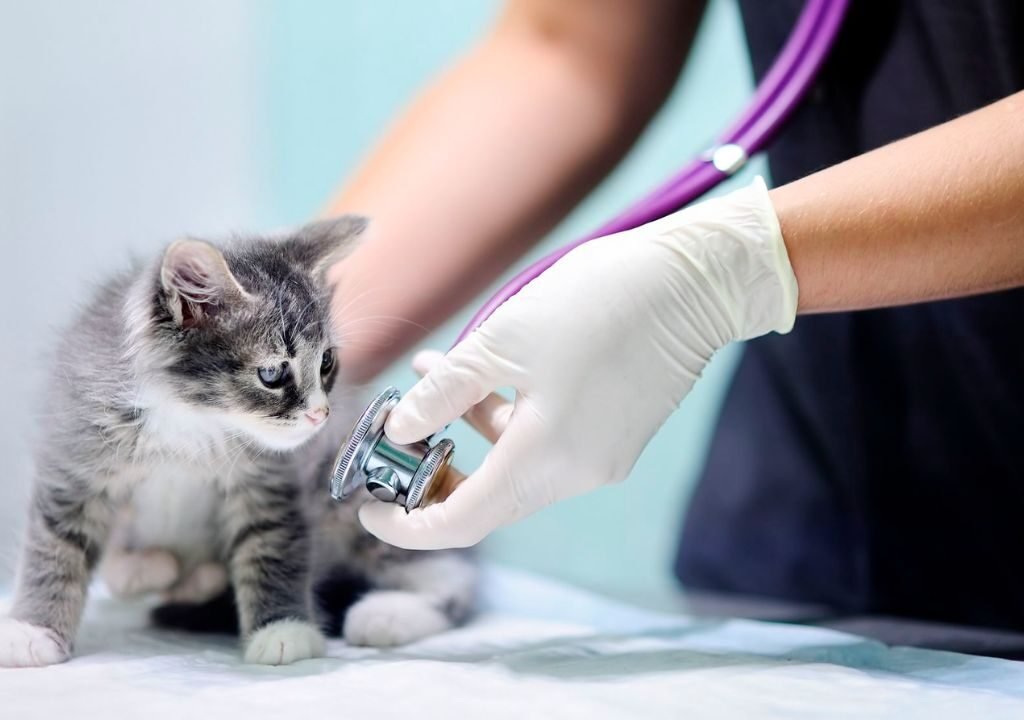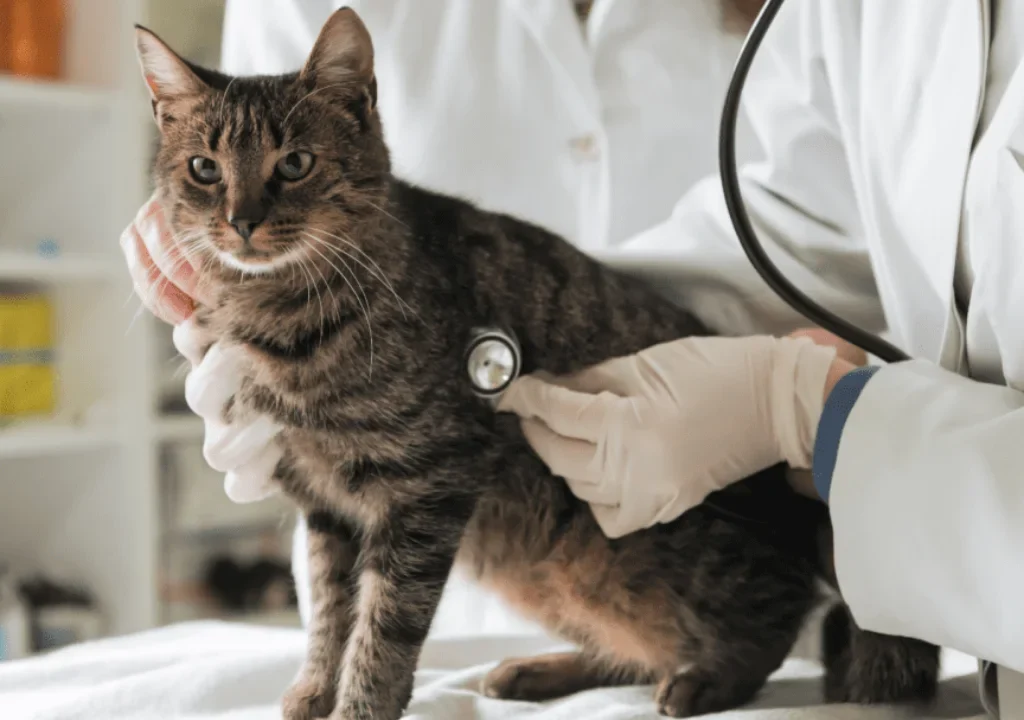
Welcoming a new kitten into your home brings immense joy, but arranging their initial veterinary appointment can seem daunting for first-time cat owners. This essential checkup establishes the groundwork for your feline companion’s lifetime health and wellness, making it vital to understand what lies ahead and how to prepare effectively.
Your kitten’s initial veterinary visit goes beyond a simple health check—it’s an all-encompassing health evaluation that determines your kitten’s health baseline, initiates their immunization program, and develops a customized preventive care strategy. Knowing what occurs during this appointment will help you approach it with confidence while ensuring your kitten receives the optimal foundation for a healthy life.
Optimal Timing for Your Kitten’s Initial Veterinary Appointment
The recommended timeframe for a kitten first vet visit generally falls between 6 to 8 weeks of age, although this may differ based on your kitten’s origin and current health condition. Here’s what veterinary professionals suggest for various situations:
Shelter and Rescue Adoptions
Felines obtained from animal shelters require veterinary attention within one week of homecoming. Shelter animals often face exposure to multiple diseases, making immediate veterinary care crucial for early identification and intervention.
Breeder and Pet Store Purchases
Kittens acquired from breeders or retail establishments should receive veterinary care within several days. Although these kittens might have received preliminary care, a complete examination confirms their health status and readiness for their new environment.
Urgent Circumstances
When your kitten appears well, aim for veterinary care within two days. Nevertheless, if you observe worrisome signs such as lethargy, appetite loss, vomiting, or diarrhea, contact your veterinarian immediately, regardless of timing.
Essential Items for Your Kitten’s First Veterinary Appointment
Thorough preparation enhances the efficiency and value of your kitten first vet visit. Here’s your comprehensive preparation guide:
Records and Documentation
- Adoption certificates or breeder purchase agreements
- Prior healthcare records detailing any previous treatments or immunizations
- Microchip details when applicable
- Pet insurance documentation if coverage exists
Health Specimens
- Recent stool sample gathered within 12 hours for parasite screening
- Current dietary information including brand, variety, and feeding routine
- Present medications or supplements your kitten receives
Comfort Essentials
- Safe transportation carrier to maintain your kitten’s security and calmness
- Comforting blanket or toy to minimize stress throughout the visit
- Prepared question list regarding care, nutrition, behavior, or health issues
Thorough Physical Assessment: What Happens
Your kitten first vet visit includes an extensive physical examination to evaluate your kitten’s complete health condition. This detailed assessment encompasses:
Exterior Evaluation
The veterinarian examines your kitten’s eyes, ears, mouth, skin, fur, and body entirely. They investigate:
- Eye condition and infection or discharge indicators
- Ear wellness searching for mites, infections, or irregularities
- Dental growth and oral health status
- Skin state examining for parasites, allergies, or inflammations
- Coat appearance evaluating nutrition and general health
Interior Assessment
This involves abdominal palpation to examine organs and stethoscope use for heart and lung evaluation. The veterinarian assesses:
- Cardiac rate and rhythm to identify potential heart issues
- Respiratory sounds ensuring proper lung function
- Abdominal structures verifying appropriate size and placement
- Lymph nodes evaluating immune system condition
- Body temperature excluding fever or hypothermia
Critical Immunizations and Health Evaluations
Your kitten first vet visit includes important discussions about essential vaccines and health examinations that guard against severe diseases.
Essential Kitten Vaccines
The fundamental immunizations typically given during initial visits include:
- FVRCP (Feline Viral Rhinotracheitis, Calicivirus, Panleukopenia) – guards against three prevalent viral infections
- Rabies immunization – legally mandated in most regions and protects against this deadly disease
Disease Screening
When your kitten is younger than nine weeks, your veterinarian might recommend postponing testing until reaching at least nine weeks. Critical examinations include:
- FeLV (Feline Leukemia Virus) screening – detects this severe immune system condition
- FIV (Feline Immunodeficiency Virus) screening – identifies the “feline AIDS” virus
- Stool parasite analysis – discovers intestinal parasites including roundworms, hookworms, and coccidia
Parasite Control
Most veterinarians discuss and potentially provide:
- Deworming treatment addressing common intestinal parasites
- Flea and tick control suitable for your kitten’s age
- Heartworm prevention in regions where heartworm occurs
Immunization Timeline and Continued Care Strategy
Understanding your kitten’s vaccination schedule ensures they receive appropriate protection at correct intervals.
Initial Year Vaccination Schedule
- 6-8 weeks: Initial FVRCP immunization
- 10-12 weeks: Second FVRCP immunization, potential FeLV/FIV screening
- 14-16 weeks: Third FVRCP immunization, rabies immunization
- Yearly boosters: Continuous protection throughout life
Spay/Neuter Consultation
Your veterinarian discusses optimal timing for spaying or neutering, usually recommended around 5-6 months of age. This discussion includes:
- Health advantages of early spay/neuter procedures
- Behavioral benefits including decreased marking and wandering
- Population management significance
- Pre-operative requirements and post-surgical care
Financial Planning for Your Kitten’s Initial Veterinary Visit
Understanding the monetary commitment helps you budget appropriately for your kitten’s healthcare requirements.
2025 Financial Overview
The preliminary examination ranges from $40-$60 typically, while kitten immunizations cost $150 to $350 average for the initial year, including physical examination and three essential vaccines.
Standard first visit expenses include:
- Physical examination: $40-$100
- Essential vaccines: $75-$150
- Parasite screening: $25-$50
- Deworming treatment: $20-$40
- Extra tests (FeLV/FIV): $50-$100
Cost-Reduction Strategies
- Wellness programs from numerous veterinary clinics allow monthly payment distribution
- Pet insurance assists with managing unexpected medical costs
- Community facilities might provide discounted services for basic care
- Service bundles for multiple procedures often offer savings
Preparing Your Environment and Kitten for Success
Your kitten first vet visit begins a lifetime partnership with veterinary care. Here’s how to ensure success for everyone:
Pre-Visit Preparation
Verify your appointment and inquire about specific pre-visit requirements. Additional preparation suggestions include:
- Withhold food only when specifically directed by your veterinarian
- Minimize stress by maintaining regular routines
- Compile questions about nutrition, behavior, training, and health concerns
During the Appointment
- Remain calm since kittens sense your emotions
- Inquire freely about anything unclear
- Document information or request written home care instructions
- Arrange future appointments for vaccinations and checkups
Post-Visit Care
- Watch your kitten for post-vaccination reactions (mild tiredness is normal)
- Follow treatment directions exactly if medications were prescribed
- Book follow-up visits before departing the clinic
- Apply preventive care suggestions discussed during the visit
Establishing a Lifetime Healthcare Partnership
Your kitten first vet visit creates the foundation for decades of preventive healthcare. Developing a strong veterinary team relationship ensures:
Care Consistency
Maintaining consistent veterinary records and relationships provides:
- Enhanced health tracking over time
- Familiarity with your kitten’s normal parameters
- Simpler problem identification when changes occur
- Customized care suggestions based on your kitten’s history
Prevention Emphasis
Regular veterinary care prioritizes prevention over treatment, which:
- Reduces costs compared to treating advanced conditions
- Preserves superior life quality for your kitten
- Identifies issues early when most treatable
- Increases lifespan through proactive health management
The investment in your kitten first vet visit provides returns throughout your cat’s lifetime, ensuring they stay healthy, content, and beside you for many years ahead.
Warning Signs: When to Seek Emergency Veterinary Care
While awaiting your scheduled kitten first vet visit, monitor for these warning indicators requiring immediate attention:
Critical Symptoms
- Breathing difficulties or open-mouth breathing
- Extreme lethargy or lack of responsiveness
- Continuous vomiting or food retention inability
- Bloody diarrhea or severe dehydration
- Eye trauma or sudden vision loss
- Urination problems or litter box straining
- Pale or blue gums showing circulation issues
- Seizures or neurological signs
Behavior Modifications
- Total appetite loss exceeding 24 hours
- Hiding and interaction avoidance when typically social
- Unusual aggressive behavior for your kitten
- Excessive vocalization or crying
- Walking difficulties or obvious movement pain
Remember, kittens can decline rapidly due to their small size and developing immune systems. When uncertain, contact your veterinarian or emergency clinic immediately.
Frequently Asked Questions About Your Kitten First Vet Visit
About the Author:
Hi, I’m Emilia! I’ve been passionate about sharing valuable pet care insights for over 10 years, and I love helping fellow pet owners provide the best care for their furry companions. My goal is to make pet care information accessible and helpful for everyone. Please remember to always consult your veterinarian before implementing any health advice or treatments for your pet.

